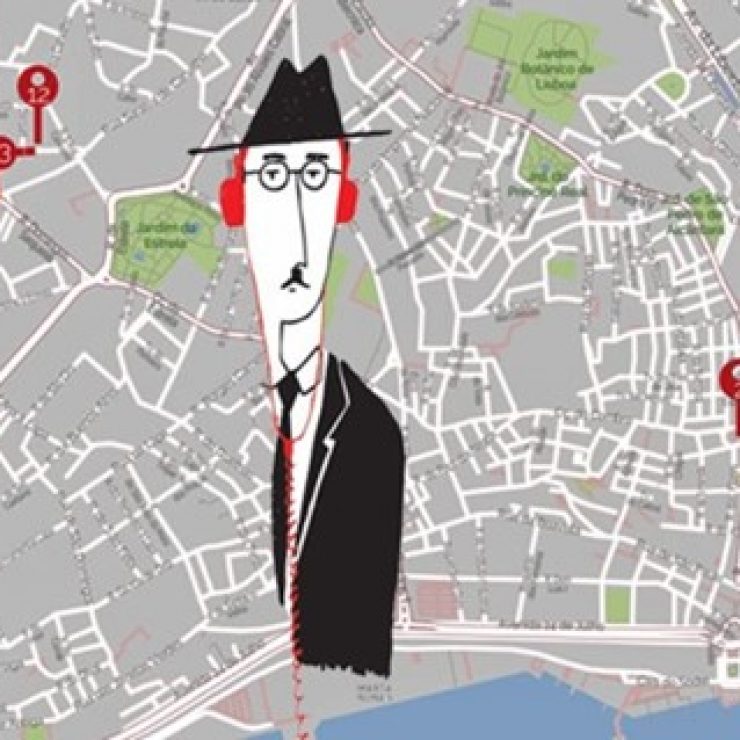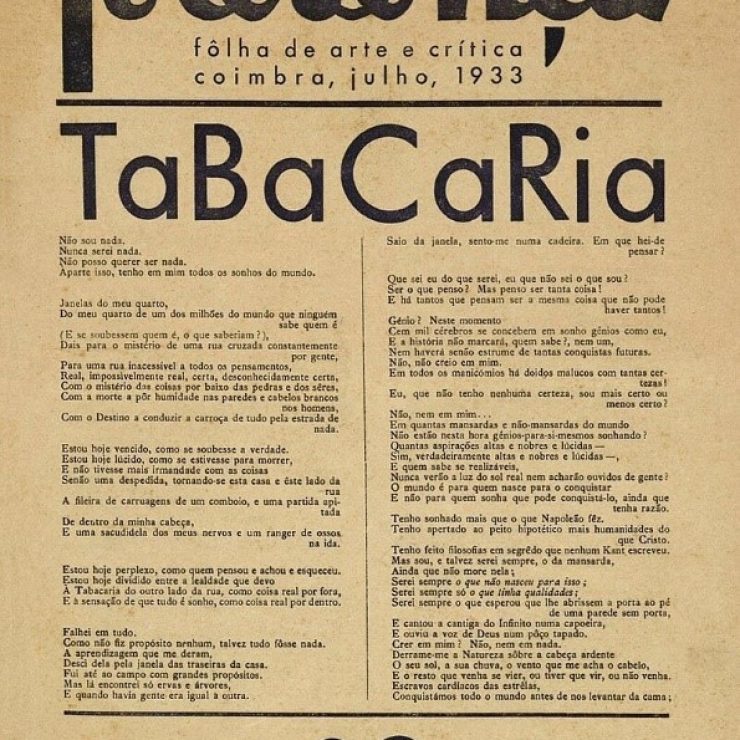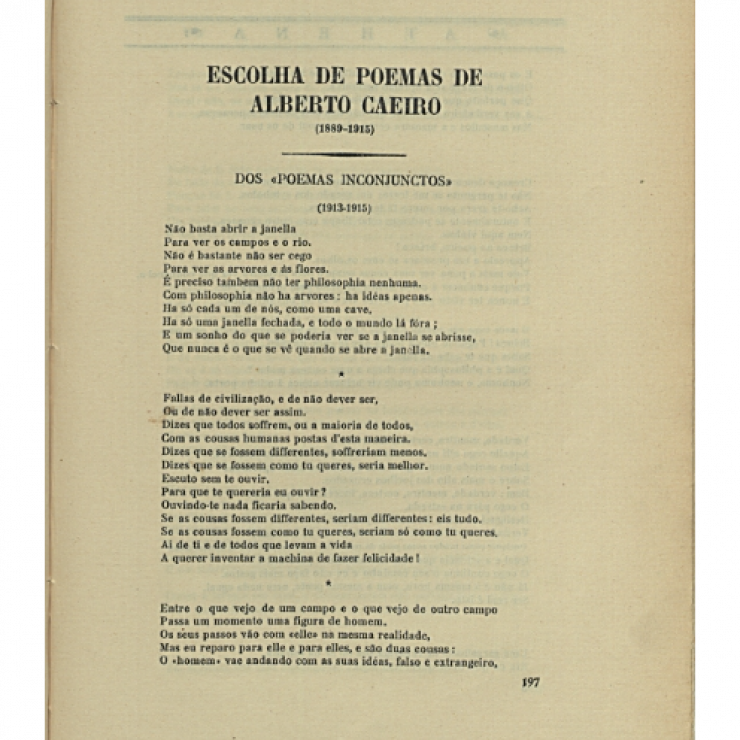In this article we will discover some of Fernando Pessoa‘s “heteronyms” which, although important in his work, are less known to the general public. By this, we aim to specify and briefly introduce a relevant part of Pessoa’s writing, diving into the fascinating and enigmatic plurality of this universal author.
As it is well known, Fernando Pessoa is a very peculiar author in the world literature history as, in addition to having written a genius work under his own name, he created a group of fictional writers or authors, imaginary friends and alter-egos – called heteronyms – who are in turn authors of literary, poetic and philosophical works.
By 1928 Pessoa had already informed the Portuguese intellectual setting that his work was divided into orthonymous (authored by Fernando Pessoa himself) and heteronymous, rejecting the category of a mere “pseudonym” for these complex characters-writers. In 1935, in the so-called “Letter on the genesis of heteronyms” (Carta sobre a génese dos heterónimos), Pessoa deepened some details about the personalities of the heteronyms known to the public until then, explaining the literary styles and the plots of such imaginary coterie, which he called the “drama in people” (drama em gente).
The most well-known heteronyms are those presented by Pessoa during his lifetime, publishing some of his works and being the most structured ones. They are the poets Alberto Caeiro, Ricardo Reis and Álvaro de Campos, and also Bernardo Soares, the semi-heteronym (as it is more within the style of the orthonymous Pessoa), author of the Book of Disquietude (Livro do Desassossego). These fictitious authors have biographies, a vast work, a well-developed individualization, a role structured in “drama”. Less known, but already with considerable literary notoriety, is the Baron of Teive, author of the journal “The Education of the Stoic” and already mentioned in a previous post on this blog.
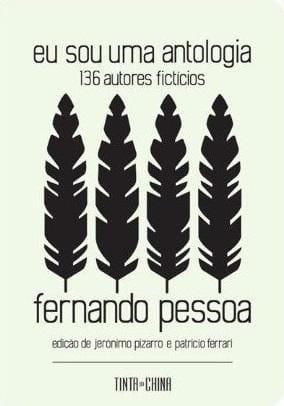
In addition to these famous personas, not all readers know that Pessoa created or outlined more heteronyms, or quasi-heteronyms, pre-heteronyms, etc., that is, fictional authors, as defined by the scholars Jerónimo Pizarro and Patricio Ferrari. Dozens and dozens of personas, many of which are unknown to the general public, comprising a total of … 136 fictitious authors! The number achieved by the two mentioned investigators after searching Pessoa’s estate is such that it resulted in the book “I am an Anthology – 136 Fictional Authors” (Eu sou uma Antologia – 136 Autores Fictícios), in which we find for each of the “heteronyms” (in the broad sense of “fictional authors”) an introductory note from the editors, some texts and the signature.
Hence, here are the descriptions of five less-known fictitious authors who all Pessoa’s readers should be acquainted with:
1) Maria José
Yes, indeed Pessoa had a female “heteronym”. In fact, he had several, but Maria José is possibly the most relevant female mask of Pessoa’s drama, being, in addition and probably, the last fictitious author created by Pessoa during his life. She is a nineteen-year-old hunchback who writes a single text – the Letter from the Hunchback to the Locksmith (Carta da Corcunda para o Serralheiro) dedicated to Mr. Antonio, who usually walked under Maria José’s window. Besides having a back hump, she describes herself as a sick person, dedicating him a text that will never be delivered, full of the impossibility of her relationship with the locksmith. The “Letter” had several theatrical and video representations, one of them directed by Luísa Monteiro and Ana Tavares.
«… and, in the end, why am I writing to you if I am not going to send you this letter?» – Maria José
2) Alexander Search
The biography of Alexander Search states he was born in Lisbon on the same day as Fernando Pessoa, on June 13, 1888. Although being an “Alfacinha” (people born in Lisbon), he has an English name, the language in which he writes a considerable part of his work, mostly poetic. He is one of the most prolific fictional authors of Pessoa’s universe, where he played a relevant role during Pessoa’s youth between 1906 and 1911. He is also one of the “heteronyms” for whom Pessoa made business cards. He is interested in philosophy, psychology and politics, signing as the “owner” of some books of the Private library of Fernando Pessoa. In 2016, singer Salvador Sobral and pianist Júlio Resende, both Portuguese, founded a pop-rock band called “Alexander Search”, a musical project strongly inspired by Pessoa’s work.
«I often think that is not thoughts which are too deep for tears, but tears which are too deep for thoughts.» – Alexander Search
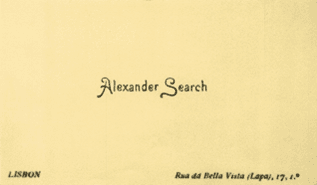
3) António Mora
António Mora is the philosopher of the Pessoa’s coterie. Also mentioned during Pessoa’s life in a text by Álvaro de Campos, Mora is the thinker whose mission is to explain in the rationalizing language of philosophy the “paganism” implicit in Alberto Caeiro’s poetry. His writing is sometimes confused with that of another pagan of his acquaintance, Ricardo Reis. Mora is mostly a religion philosopher who analyses the decadence of Christianity and defends a return to the mentality, culture and religiosity of Ancient Greece in contemporary society. In addition, he is the protagonist of a short story titled “In the Health Home of Cascais” (“Na Casa de Saúde de Cascais”). He is a very prolific persona and one of the works that Pessoa gives him is the treaty entitled The Return of Gods (“O Regresso dos Deuses”).
« Surely all roads lead to the truth, as we never forget that it is towards the truth we want to go!» – António Mora
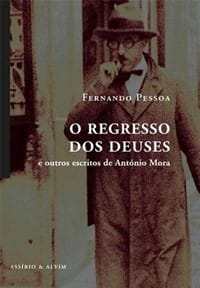
4) Vicente Guedes
Vicente Guedes was the second of the three authors of the Book of Disquietude (“Livro do Desassossego”), after Fernando Pessoa and before Bernardo Soares. He also wrote short stories and poems, having probably appeared in 1909 in Pessoa’s writing. He is a prolific and multifaceted author and his “phase” of the Book of Disquietude – from the mid-1910s to about 1920 – has been described as the most decadent and diarist. In 2014, the writer Ricardo Belo de Morais produced and published a sui generis biography of Pessoa, titled The Rented Room (O Quarto Alugado) and whose “author” is … Vicente Guedes.
« For Vicente Guedes to be aware of himself it required art and moral; dreaming was a religion.» – Fernando Pessoa
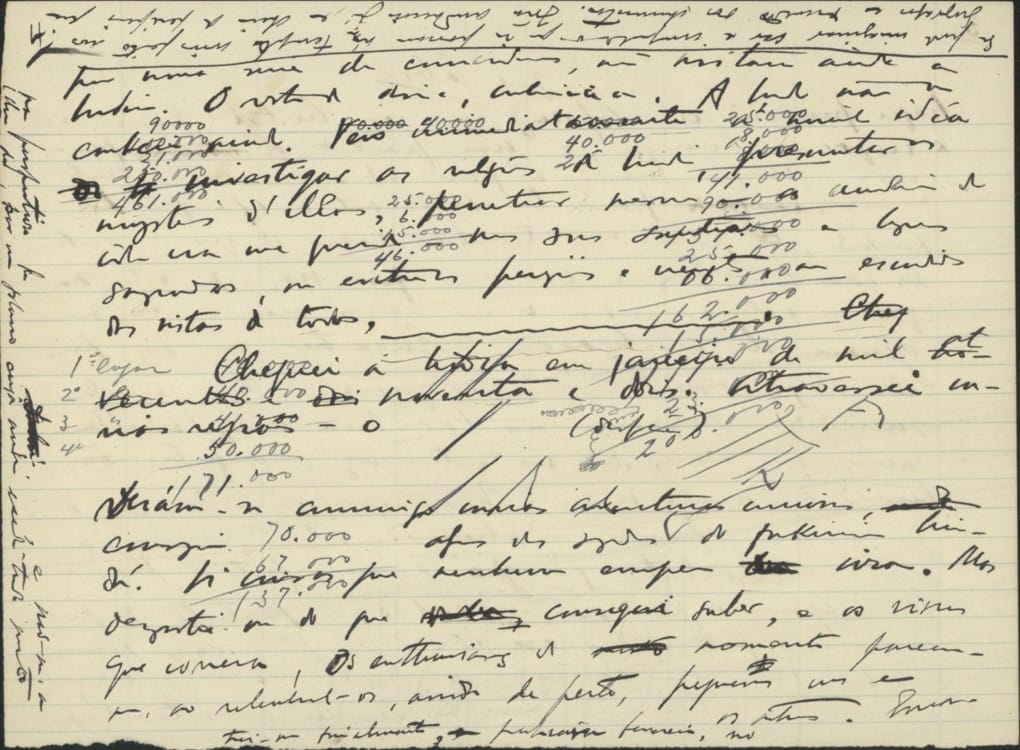
5) Raphael Baldaya
As an astrologer, thinker and occultist, besides authoring a series of Pessoa’s prose works such as the “Treaty of Astrology” (“Tratado de Astrologia”), the “Treaty of Denial” (“Tratado da Negação”) and the “Principles of Esoteric Metaphysics” (“Princípios de Metafísica Esotérica”), Raphael Baldaya became a kind of business project: he wanted to propose this name for an astrologer who answered public consultations by letter. In fact, Pessoa was an astrologer and would have thought of earning some money behind Baldaya’s mask. This is possibly the literary character that most represents Pessoa’s occult side. He appears in his writing around 1915, when the future author of the Message (“Mensagem”) read and translated books of the Theosophical Society (“Sociedade Teosófica”), an international organization of occultists.
«The World is formed by two orders of forces: the forces that affirm and the forces that deny» – Raphael Baldaya
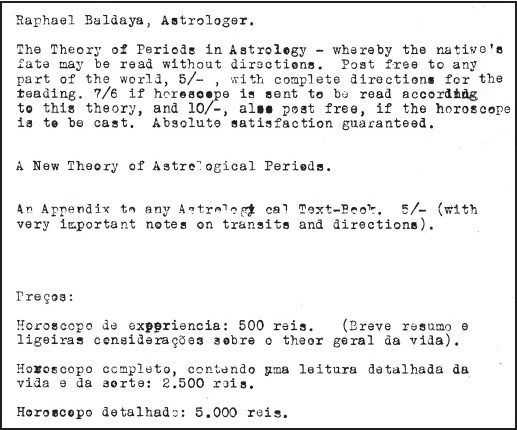
Some of the images come from the estate of Fernando Pessoa and its files, stored in the Biblioteca Nacional de Portugal and in Casa Fernando Pessoa.
Fabrizio Boscaglia
_
Discover Lisboa & Pessoa from Lisboa Pessoa Hotel, a themed boutique hotel inspired by Fernando Pessoa.

